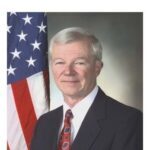Charting the right course is a constant challenge for any business, but it is challenging if the only people you get advice from are yourselves. Although we are the global leaders in Low-Frequency PNT solutions such as Loran, eLoran, and LFPhoenix ™ – technologies for which we have been passionate for decades – it helps to have objective and candid feedback about our business and technology strategies. We accomplish this through informed guidance from leaders who have demonstrated capabilities in starting and running businesses, are recognized subject matter experts from academia, industry, and government, are from diverse backgrounds, and have advanced the well-being of citizens and societies worldwide. We are honored to have access to the highest quality advice and insight that enhances our ability to help our customers succeed.

Dr. Sherman Lo
Senior Research Engineer at Stanford University

Dr. Gene H. McCall
Independent Military Professional

Dr. Wouter Pelgrum
Principal Navigation Engineer at Blue Origin

Logan Scott
Logan Scott Consulting
